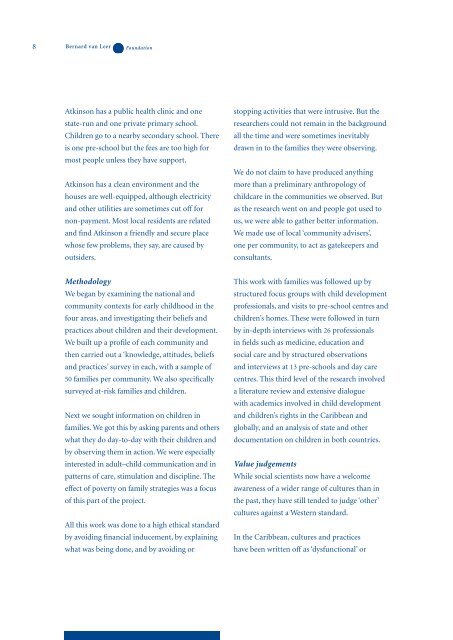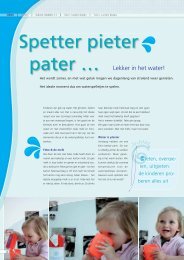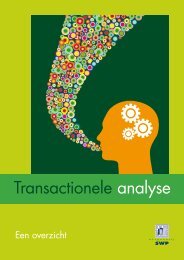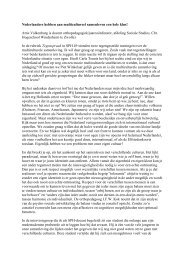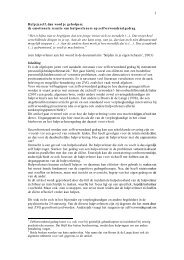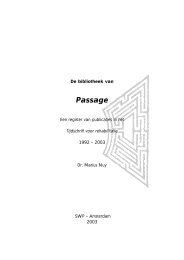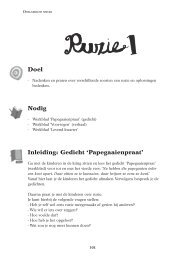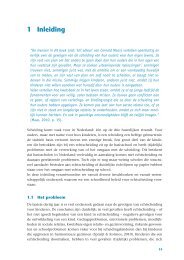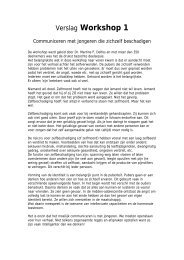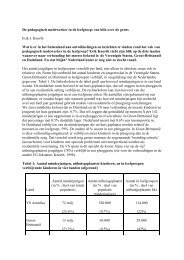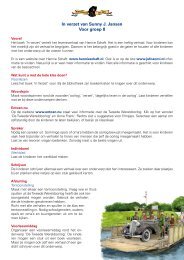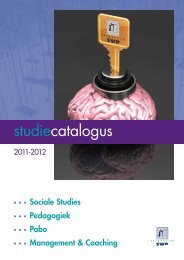Early childhood in the Caribbean - Bernard van Leer Foundation
Early childhood in the Caribbean - Bernard van Leer Foundation
Early childhood in the Caribbean - Bernard van Leer Foundation
Create successful ePaper yourself
Turn your PDF publications into a flip-book with our unique Google optimized e-Paper software.
8<br />
Atk<strong>in</strong>son has a public health cl<strong>in</strong>ic and one<br />
state-run and one private primary school.<br />
Children go to a nearby secondary school. There<br />
is one pre-school but <strong>the</strong> fees are too high for<br />
most people unless <strong>the</strong>y have support.<br />
Atk<strong>in</strong>son has a clean environment and <strong>the</strong><br />
houses are well-equipped, although electricity<br />
and o<strong>the</strong>r utilities are sometimes cut off for<br />
non-payment. Most local residents are related<br />
and f<strong>in</strong>d Atk<strong>in</strong>son a friendly and secure place<br />
whose few problems, <strong>the</strong>y say, are caused by<br />
outsiders.<br />
Methodology<br />
We began by exam<strong>in</strong><strong>in</strong>g <strong>the</strong> national and<br />
community contexts for early <strong>childhood</strong> <strong>in</strong> <strong>the</strong><br />
four areas, and <strong>in</strong>vestigat<strong>in</strong>g <strong>the</strong>ir beliefs and<br />
practices about children and <strong>the</strong>ir development.<br />
We built up a profile of each community and<br />
<strong>the</strong>n carried out a ‘knowledge, attitudes, beliefs<br />
and practices’ survey <strong>in</strong> each, with a sample of<br />
50 families per community. We also specifically<br />
surveyed at-risk families and children.<br />
Next we sought <strong>in</strong>formation on children <strong>in</strong><br />
families. We got this by ask<strong>in</strong>g parents and o<strong>the</strong>rs<br />
what <strong>the</strong>y do day-to-day with <strong>the</strong>ir children and<br />
by observ<strong>in</strong>g <strong>the</strong>m <strong>in</strong> action. We were especially<br />
<strong>in</strong>terested <strong>in</strong> adult–child communication and <strong>in</strong><br />
patterns of care, stimulation and discipl<strong>in</strong>e. The<br />
effect of poverty on family strategies was a focus<br />
of this part of <strong>the</strong> project.<br />
All this work was done to a high ethical standard<br />
by avoid<strong>in</strong>g f<strong>in</strong>ancial <strong>in</strong>ducement, by expla<strong>in</strong><strong>in</strong>g<br />
what was be<strong>in</strong>g done, and by avoid<strong>in</strong>g or<br />
stopp<strong>in</strong>g activities that were <strong>in</strong>trusive. But <strong>the</strong><br />
researchers could not rema<strong>in</strong> <strong>in</strong> <strong>the</strong> background<br />
all <strong>the</strong> time and were sometimes <strong>in</strong>evitably<br />
drawn <strong>in</strong> to <strong>the</strong> families <strong>the</strong>y were observ<strong>in</strong>g.<br />
We do not claim to have produced anyth<strong>in</strong>g<br />
more than a prelim<strong>in</strong>ary anthropology of<br />
childcare <strong>in</strong> <strong>the</strong> communities we observed. But<br />
as <strong>the</strong> research went on and people got used to<br />
us, we were able to ga<strong>the</strong>r better <strong>in</strong>formation.<br />
We made use of local ‘community advisers’,<br />
one per community, to act as gatekeepers and<br />
consultants.<br />
This work with families was followed up by<br />
structured focus groups with child development<br />
professionals, and visits to pre-school centres and<br />
children’s homes. These were followed <strong>in</strong> turn<br />
by <strong>in</strong>-depth <strong>in</strong>terviews with 26 professionals<br />
<strong>in</strong> fields such as medic<strong>in</strong>e, education and<br />
social care and by structured observations<br />
and <strong>in</strong>terviews at 13 pre-schools and day care<br />
centres. This third level of <strong>the</strong> research <strong>in</strong>volved<br />
a literature review and extensive dialogue<br />
with academics <strong>in</strong>volved <strong>in</strong> child development<br />
and children’s rights <strong>in</strong> <strong>the</strong> <strong>Caribbean</strong> and<br />
globally, and an analysis of state and o<strong>the</strong>r<br />
documentation on children <strong>in</strong> both countries.<br />
Value judgements<br />
While social scientists now have a welcome<br />
awareness of a wider range of cultures than <strong>in</strong><br />
<strong>the</strong> past, <strong>the</strong>y have still tended to judge ‘o<strong>the</strong>r’<br />
cultures aga<strong>in</strong>st a Western standard.<br />
In <strong>the</strong> <strong>Caribbean</strong>, cultures and practices<br />
have been written off as ‘dysfunctional’ or


